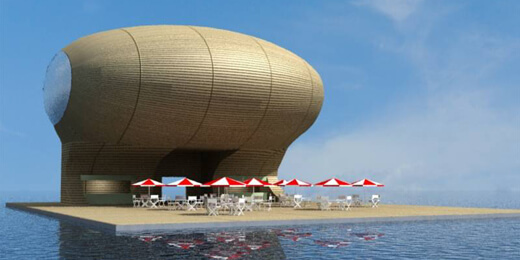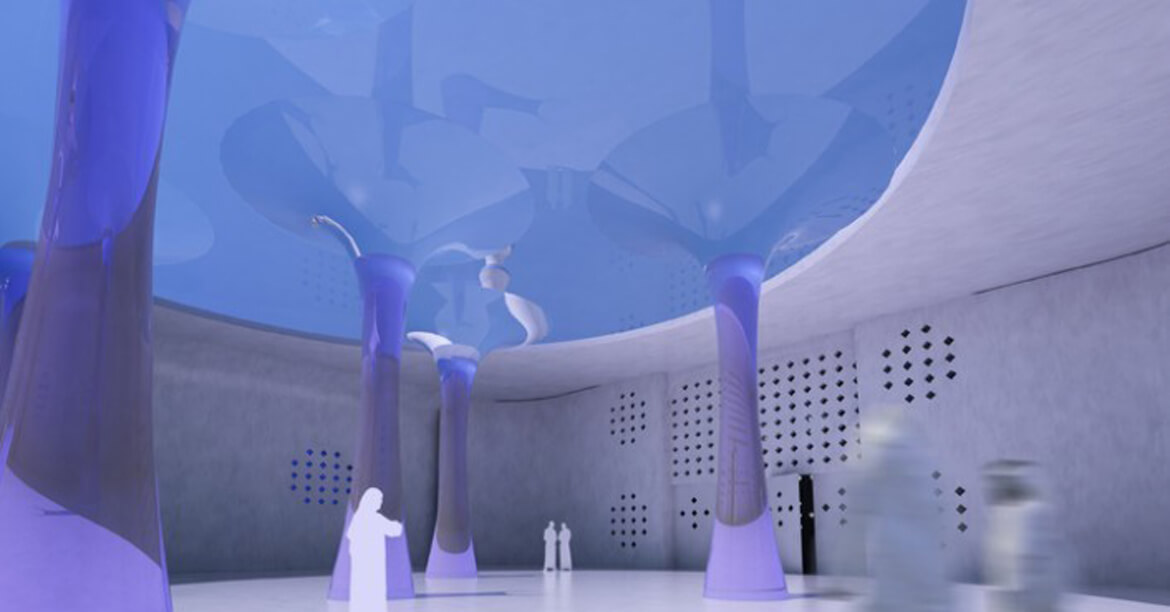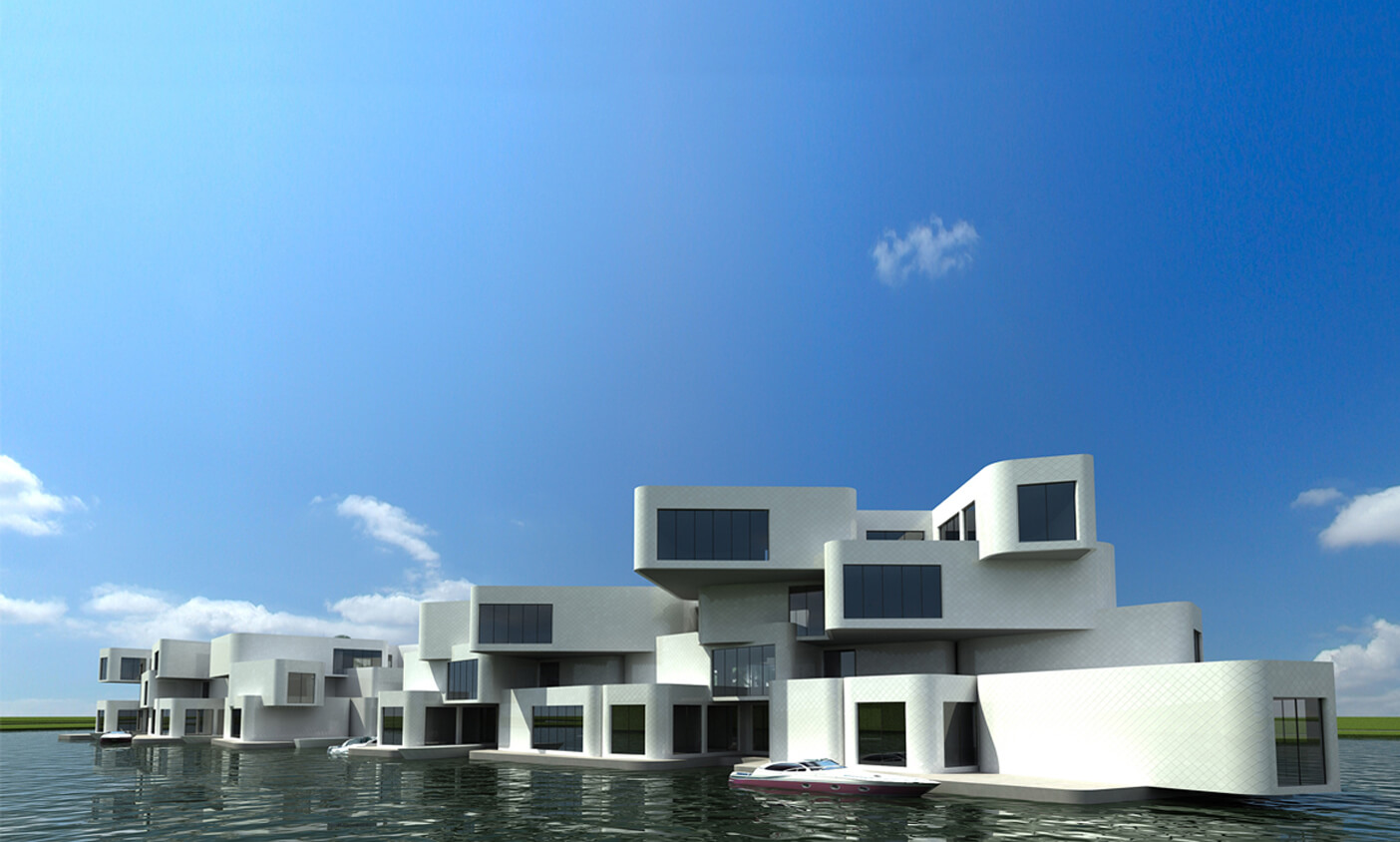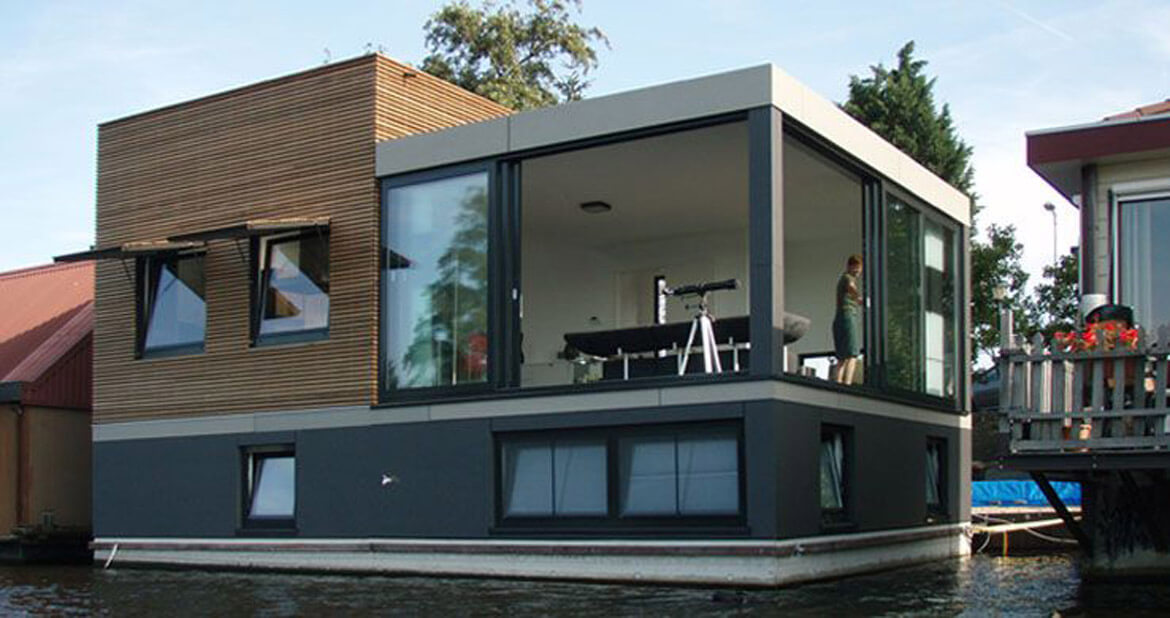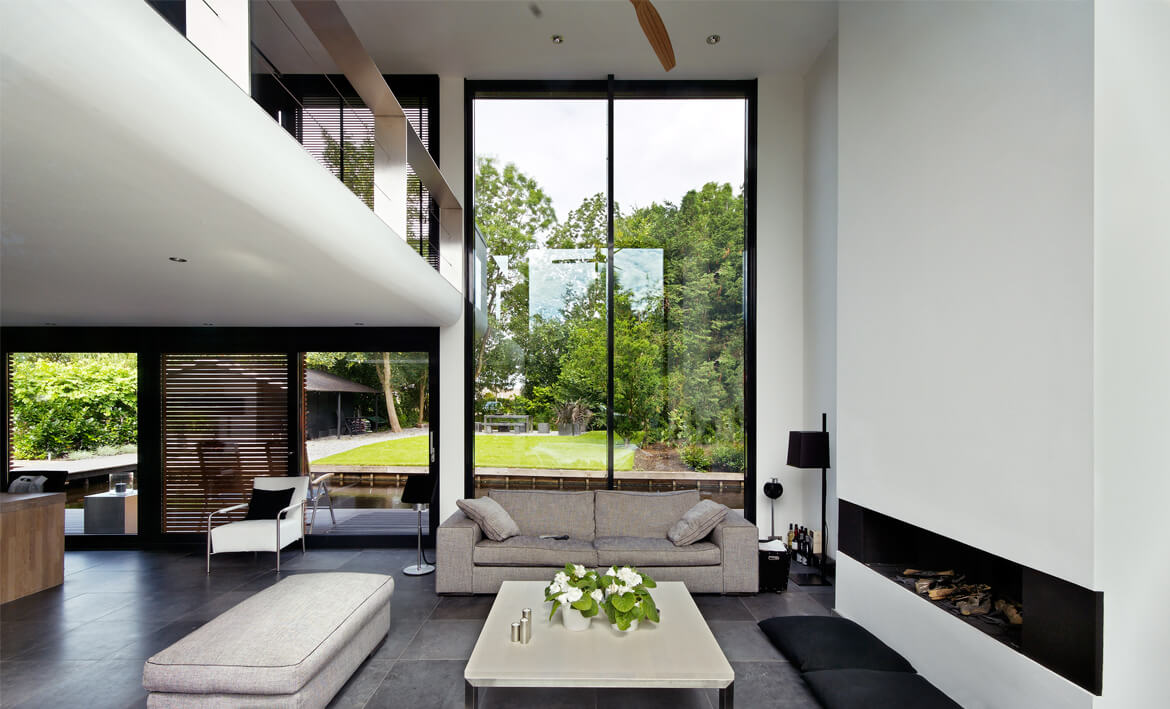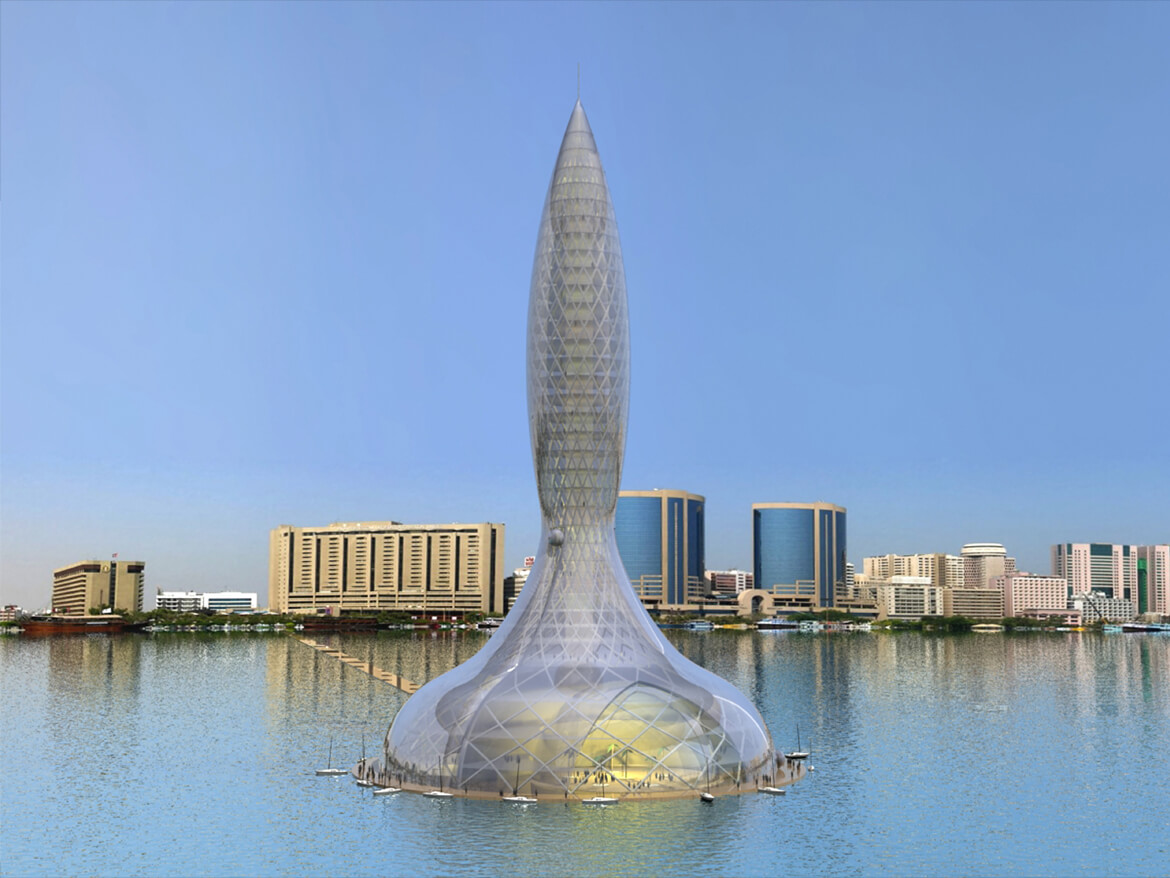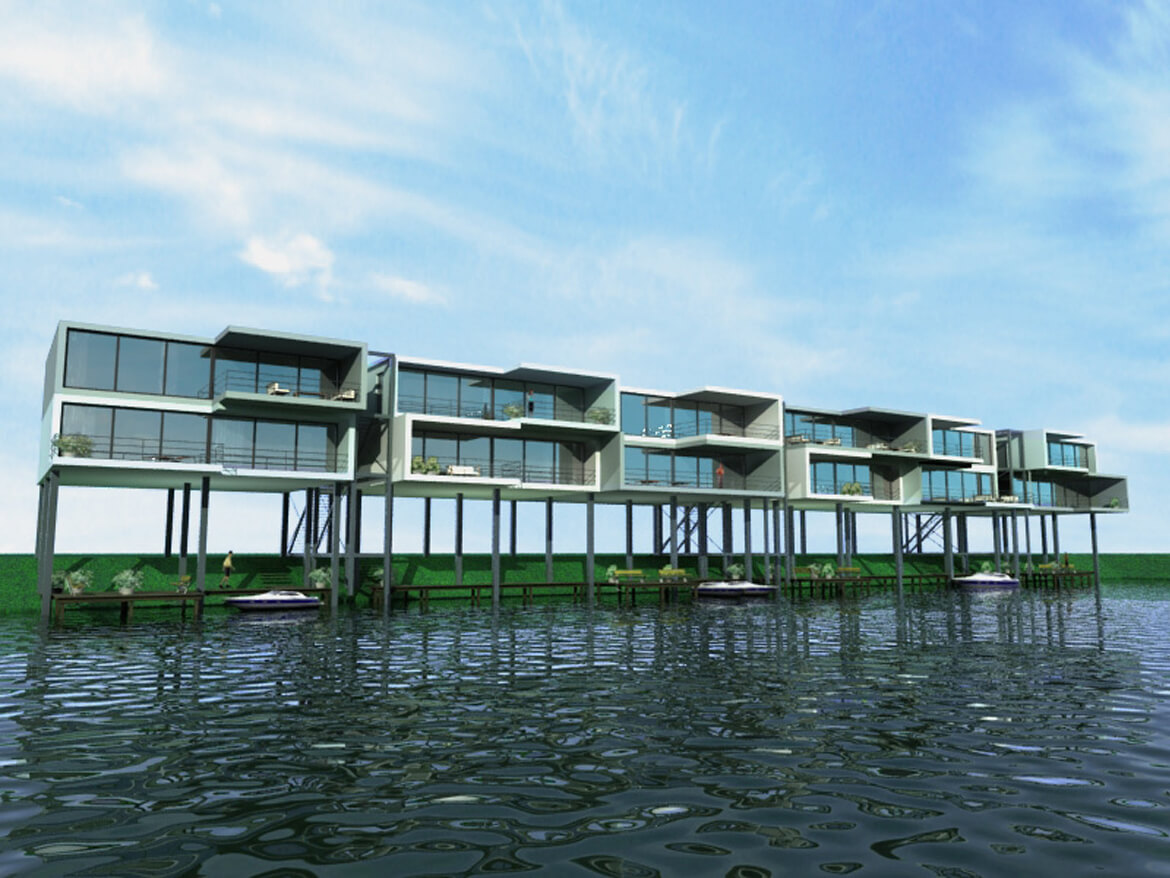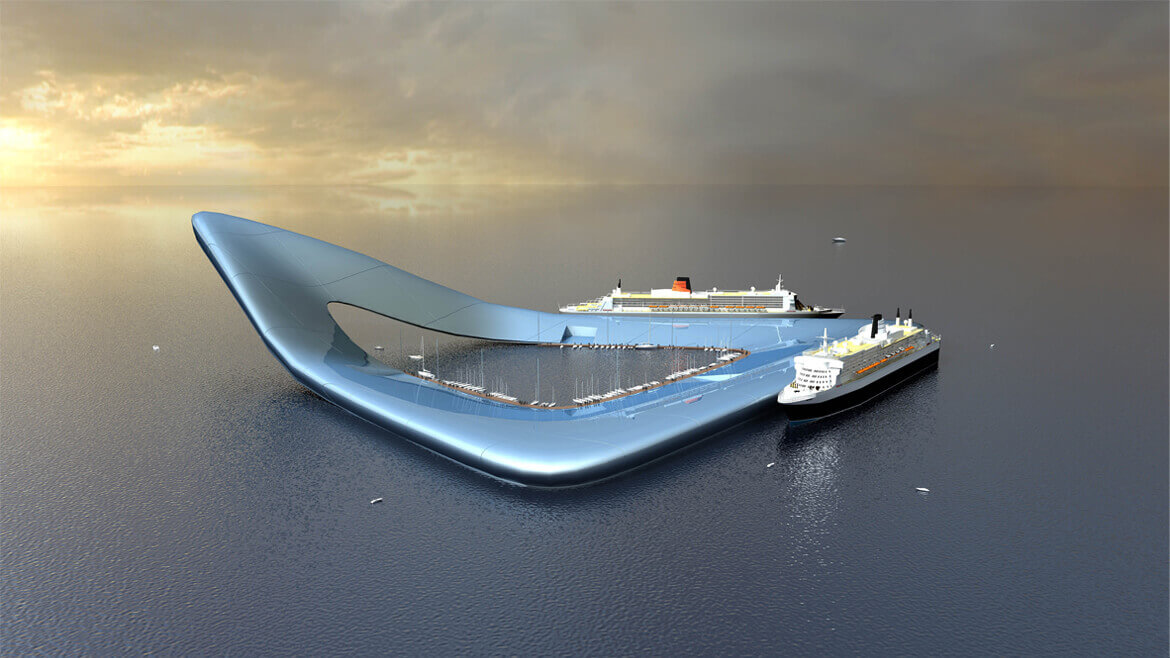Europe’s First Floating Apartment is First Step to Real Floating Cities?
By Kit Eaton
Fast Company
June.16.2009
PhotoCredit:Waterstudio
Dutch architect Koen Olthuis has plans to build Europe’s first floating apartment building in 2010. But it’s just the first step towards whole floating cities, like the concepts we’ve shown before.
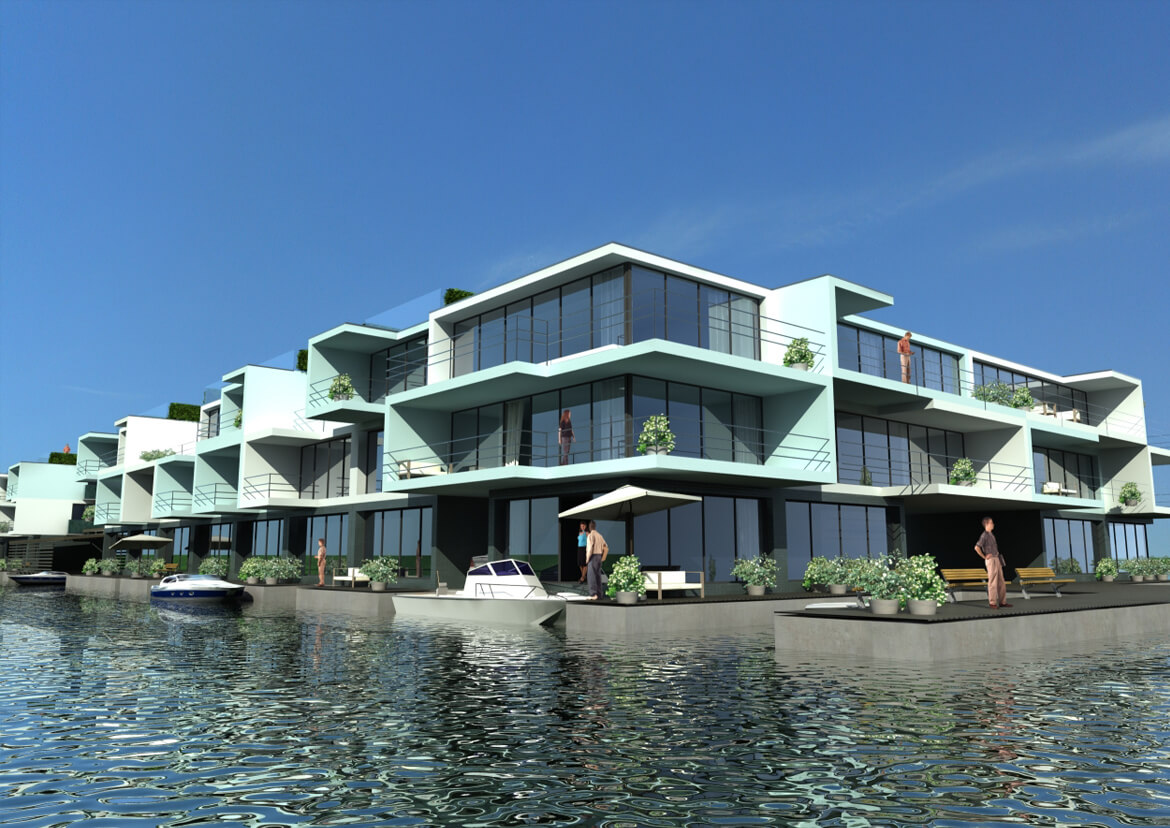
Construction on The Citadel is scheduled to begin in 2010, and it’s a full 60-meter by 140 meter four story-high edifice. And if you don’t think that making a whole apartment block float is impressive enough, then Olthuis is also working on designing floating roads and parks–the infrastructure of a full floating city. According to Olthuis, this may even be the most sustainable way to build for the future.
Why does he suggest that? Because when a building’s lifespan is up after fifty years, you simply tow it away for disposal and leave no scar on the landscape–because there is no landscape. It’s an odd point, because there will be infrastructure beneath the floating buildings (a darn good anchor, at the least) that will remain, and which will need renewal. Perhaps if you measure the fuel emissions of the vehicles needed to knock down a conventional house and cart away the debris, versus the tug needed to haul a floating house to a disposal yard, then that’s where the benefit lies?
The eco point is a bit far-fetched, but it’s hard to argue with some of the benefits of a floating city, complete with floating roads. For one, you’d have a great heat sink very nearby–the ocean–which would be an excellent benefit to building cooling systems. And if you encountered recurring gnarly traffic, or there was an infrastructure issue or pressing building planning problem, then repositioning floating buildings and roads would be much easier than restructuring a traditional city block.
But really, when you get right down to it, there’s just one big benefit. As global warming pushes the sea levels up, and global population continues to rise, building on the ocean is going to look like an extremely sensible option.
First Step to Real Floating Cities?

Europe’s First Floating Apartment is First Step to Real Floating Cities?
Dutch architect Koen Olthuis has plans to build Europe’s first floating apartment building in 2010. But it’s just the first step towards whole floating cities, like the concepts we’ve shown before.
Construction on The Citadel is scheduled to begin in 2010, and it’s a full 60-meter by 140 meter four story-high edifice. And if you don’t think that making a whole apartment block float is impressive enough, then Olthuis is also working on designing floating roads and parks–the infrastructure of a full floating city. According to Olthuis, this may even be the most sustainable way to build for the future.
Why does he suggest that? Because when a building’s lifespan is up after fifty years, you simply tow it away for disposal and leave no scar on the landscape–because there is no landscape. It’s an odd point, because there will be infrastructure beneath the floating buildings (a darn good anchor, at the least) that will remain, and which will need renewal. Perhaps if you measure the fuel emissions of the vehicles needed to knock down a conventional house and cart away the debris, versus the tug needed to haul a floating house to a disposal yard, then that’s where the benefit lies?
The eco point is a bit far-fetched, but it’s hard to argue with some of the benefits of a floating city, complete with floating roads. For one, you’d have a great heat sink very nearby–the ocean–which would be an excellent benefit to building cooling systems. And if you encountered recurring gnarly traffic, or there was an infrastructure issue or pressing building planning problem, then repositioning floating buildings and roads would be much easier than restructuring a traditional city block.
But really, when you get right down to it, there’s just one big benefit. As global warming pushes the sea levels up, and global population continues to rise, building on the ocean is going to look like an extremely sensible option.
Assignment for Floating Clubhouse and Library
Waterstudio.NL was assigned to make a preliminary design for a floating Clubhouse and Library for the Sovereign Harbour Social Club for older people in the UK
Presentation first floating apartmentcomplex ‘Citadel’ in Westland
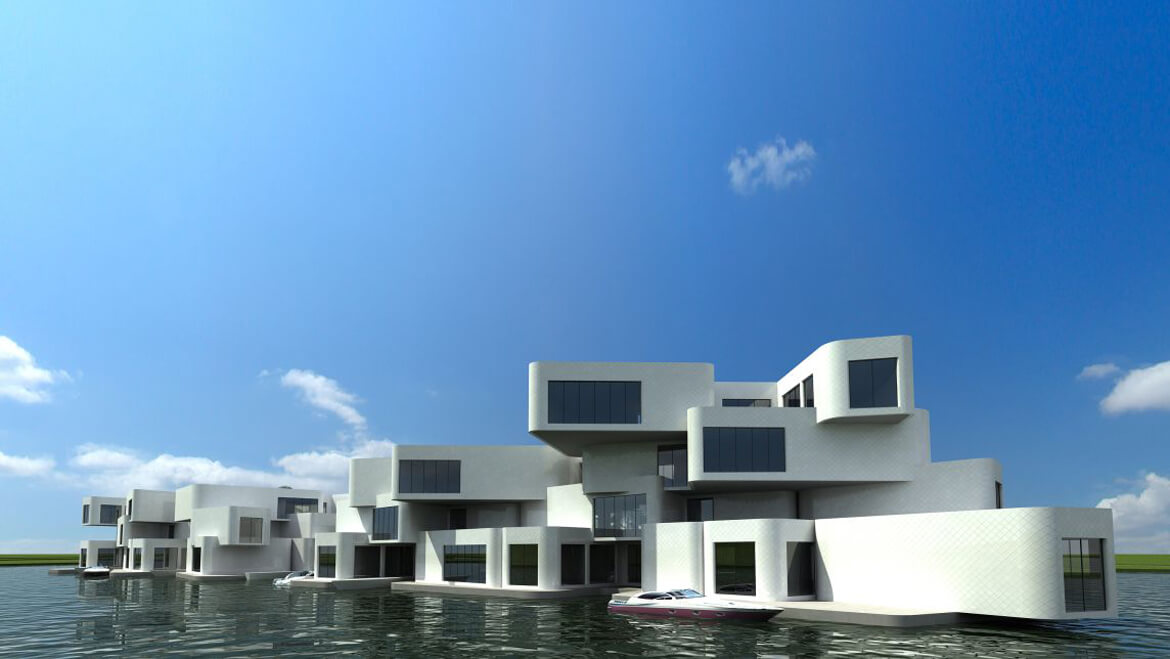
Waterstudio has showed his first design of the first floating apartmentcomplex to the public in Westland. More information about the Citadel can be found on www.citadelhetnieuwewater.nl.
Assignment for floating apartmentcomplex

Waterstudio.NL obtained the assignment for the design of a floating apartmentcomplex. The building will be located in the urban development Het nieuwe water near The Hague in The Netherlands.




